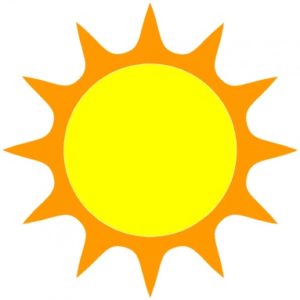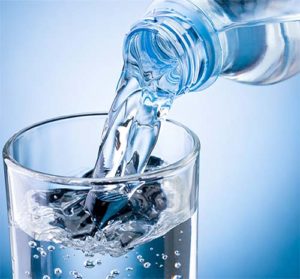July 15, 2020
This summer, when spending times outdoors, it is important to protect your family and yourself from the sun and the harmful effects of the sun such as skin cancer and sunburn.
Some tips from the Canadian Dermatology Association on how to protect your skin from the sun’s rays include:

• Limit sun exposure between 11 am and 4 pm
• Use wide brimmed hats and clothing to shade the skin
• Plan for activities in the shade, especially when the sun is directly overhead and its rays are strongest
• Use an SPF 30 or a higher broad spectrum sunscreen (protects against UVA and UVB) and re-apply at least every 2 hours
Along with sun safety is proper hydration; especially during the summer months. For those living with diabetes, the focus is often on carbohydrates and sometimes it is easy to forget about the important role of fluids. Proper hydration helps us stay healthy and energized.
Fluids help:

• Control body temperature
• Digestion
• Carry nutrients around the body
• Cushion organs and joints
• Get rid of waste
• Keep our bowels regular
Dehydration reduces aerobic exercise performance and makes exercise seem harder. When we exercise, our muscles generate heat, which causes sweat. Perspiration is our body’s natural air conditioning system. Dehydration causes decreased rate of sweat. This can make it difficult for the body to regulate its temperature. As a result, the body fails to cool down, which may lead to heat exhaustion.
What are some possible symptoms of moderate dehydration?
Thirst Dry lips and mouth Flushed skin Tiredness Irritability
Headaches/dizziness Dark strong smelling urine Fainting Low blood pressure Increased heart rate
Our bodies lose water by sweating, breathing and getting rid of waste. If you lose more fluid that you take in, you can get dehydrated. But how much fluid do you need to take in? Well that depends on your age, gender and activity level. Hot and humid weather also increases the need. To keep well hydrated aim for:
• 3 L of water for mean ( 12 cups)
• 2.2 L of eater for women ( 9 cups)
So what drinks should you choose?
Choose more often:
Water
Skim or low fat (1%) milk or milk alternatives
Non-alcoholic beverages Alcoholic beverages
Tea, coffee
Choose less often:
Sports drinks, vitamin water , fruit juice
pop, other sweetened drinks
Regular Alcoholic beverages
Specialty teas and coffees with syrup and whipped cream
Water is an effective fluid replacement drink for exercise sessions lasting <1 hour
So this summer, consider both sun safety and proper hydration when planning for that next outing!
